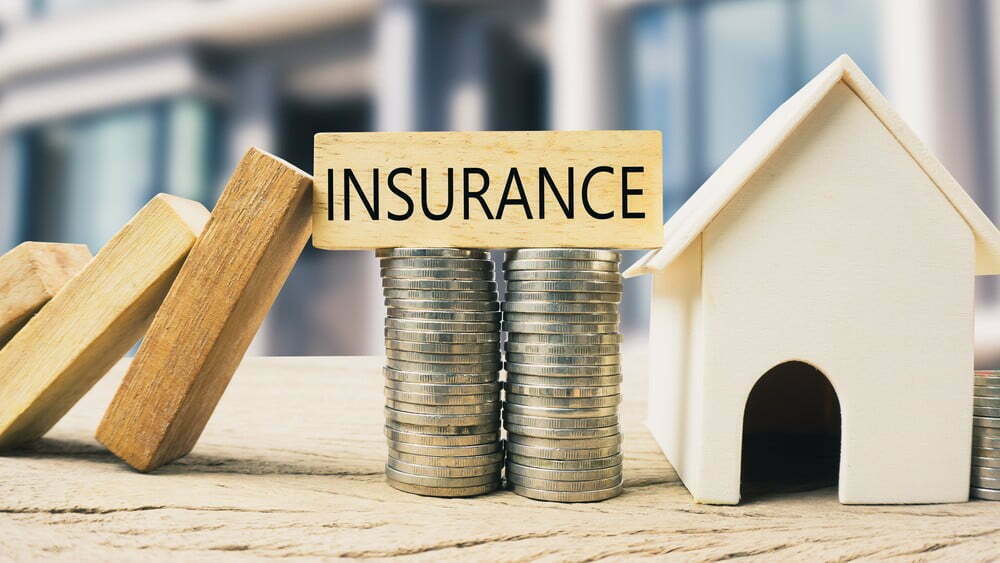There are many types of insurance plans that should offer coverage throughout a wide variety of scenarios. Many insurance types fall under the umbrella term of property insurance, just like smartphone insurance plans.
KEY TAKEAWAYS:
- Property insurance can include homeowner’s insurance, renter’s insurance, item-specific insurance, or disaster-specific insurance.
- A traditional homeowner’s insurance plan covers damage caused to the home itself by natural disasters.
- Flooding and earthquake damage typically require a separate disaster-specific insurance plan.
Property Insurance Definition
Property insurance, as the name suggests, describes a type of insurance plan designed to offer coverage to items that belong to you. There are several forms of property insurance, some offering coverage for a specific item, such as a smartphone, and others offering coverage to everything inside of a rented or owned home. For a specific smartphone coverage plan, read about what phone insurance is.
What is Property Insurance for Your Home?
There are a number of different types of property insurance, each offering its own key benefits. Here are some of the main property insurance types you are likely to run into and some of the advantages and potential disadvantages. For your phone, you will also be interested in knowing what to do if it gets bricked and you have insurance.
Homeowner’s Insurance
Homeowner’s insurance is a must-have if you are thinking of purchasing a house, apartment, or condominium in the near future. A standard homeowner’s insurance plan typically covers damage to the property itself. This includes damage caused by fires, lightning strikes, windstorms, and hail, among other natural disasters. As a warning, not many homeowners’ insurance plans cover damage pertaining to earthquakes or flash floods.
Renter’s Insurance
Renter’s insurance can be extremely convenient to those who rent their homes because typical homeowner’s insurance does not pertain to landlords and the people who occupy their spaces. Renter’s insurance plans typically cover lost or stolen items of value, which could come in handy if you are ever the victim of a burglary. Renter’s insurance plans also generally cover damages pertaining to acts of vandalism and can even cover a tenant’s potential liability if someone is injured while on the property. Renter’s insurance does not always cover damage caused by a flood, so read the fine print.
Disaster-specific Property Insurance
There are many property insurance plans that are tailored to help people in the event of a natural disaster. Unlike standard homeowner’s and renter’s insurance plans, these disaster-specific plans typically cover property damage pertaining to flooding and earthquakes, in addition to offering coverage for damage pertaining to fires, lightning strikes, and more extreme weather conditions. These insurance plans typically pay out money for item replacement and require consumers to keep track of items of property that have been damaged or destroyed.
F.A.Q.S
What is commercial property insurance?
Commercial property insurance refers to plans catering to business owners. These plans cover damage or theft of a business’s physical assets.
What is the standard deductible in a commercial property insurance policy?
There is no standard deductible for commercial property insurance plans, as these numbers vary. Consumers are often given the option to select their own deductible.
What is not covered by property insurance?
Mold is typically not covered by property insurance plans, nor are acts of terrorism and damage related to a nuclear war.
STAT: In 2019, there were approximately 43 million housing units occupied by renters in the United States. (source)



































![Best Cell Phone Cases in [year] ([month] Reviews) 27 Best Cell Phone Cases in 2026 (January Reviews)](https://www.gadgetreview.dev/wp-content/uploads/Gresso-Revolution-Bumper-Case-for-iPhone-5-b-650x406-1.jpg)
![Best Bluetooth Headsets in [year] ([month] Reviews) 28 Best Bluetooth Headsets in 2026 (January Reviews)](https://www.gadgetreview.dev/wp-content/uploads/best-bluetooth-headsets-image.jpg)
![Best iPhone in [year] ([month] Reviews) 29 Best iPhone in 2026 (January Reviews)](https://www.gadgetreview.dev/wp-content/uploads/best-iphone-image.jpg)
![Best Android Phone in [year] ([month] Reviews) 30 Best Android Phone in 2026 (January Reviews)](https://www.gadgetreview.dev/wp-content/uploads/best-android-phone-image.jpg)
![Best Cell Phone Plans in [year] ([month] Reviews) 31 Best Cell Phone Plans in 2026 (January Reviews)](https://www.gadgetreview.dev/wp-content/uploads/verizon-reviews.png)
![Best Credit Cards with Cell Phone Insurance in [year] 32 Best Credit Cards with Cell Phone Insurance in 2026](https://www.gadgetreview.dev/wp-content/uploads/best-credit-cards-with-cell-phone-insurance-image-1.jpg)
![Best Smartphone in [year] ([month] Reviews) 33 Best Smartphone in 2026 (January Reviews)](https://www.gadgetreview.dev/wp-content/uploads/MagCase-Is-The-Worlds-Thinnest-Phone-Case-1.jpg)
![Best iPhone Battery Cases in [year] ([month] Reviews) 34 Best iPhone Battery Cases in 2026 (January Reviews)](https://www.gadgetreview.dev/wp-content/uploads/best-iphone-battery-cases-image.jpg)
![10 Best Rugged Smartphones in [year] 35 10 Best Rugged Smartphones in 2026](https://www.gadgetreview.dev/wp-content/uploads/best-rugged-smartphone.jpg)
![10 Most Secure Phones in [year] 36 10 Most Secure Phones in 2026](https://www.gadgetreview.dev/wp-content/uploads/Most-Secure-Phone.jpg)
![10 Best Selfie Camera Phones in [year] 37 10 Best Selfie Camera Phones in 2026](https://www.gadgetreview.dev/wp-content/uploads/best-selfie-camera-phone.jpg)
![10 Best Dual SIM Phones in [year] 38 10 Best Dual SIM Phones in 2026](https://www.gadgetreview.dev/wp-content/uploads/best-dual-sim-phone.jpg)
![10 Best Small Phones in [year] 39 10 Best Small Phones in 2026](https://www.gadgetreview.dev/wp-content/uploads/best-small-phones.jpg)
![10 Best Low Light Camera Phones in [year] 40 10 Best Low Light Camera Phones in 2026](https://www.gadgetreview.dev/wp-content/uploads/best-low-light-camera-phone.jpeg)



















